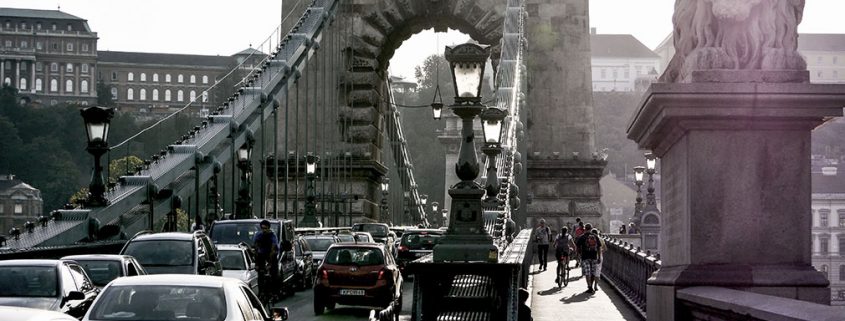If in Doubt Choose the Car – Why?

Most Europeans still feel a strong emotional connection to their car. But why is that the case? In Florence, a group of Italian researchers conducted an experiment investigating the process of decision making by consumers: In most cases, a consumer will choose going by car over using public transport, even in cases where taking public transport represents a faster, cheaper and more efficient option. The ‘automobile effect’ makes clear why so many people prefer driving a car to more economic alternatives.
The car wins – even though it is expensive
We do not always make rational decisions, especially when it comes to the choice of transportation. Instead of considering all possible options and choosing the most time-saving and economic one, many people prefer to be the driver themselves – even if it is not the most efficient option.
Scientists studied a group of participants who were engaging in a game about modes of transportation. In this game, participants were given the choice between going by car or taking the metro. Each player started off with a certain budget and taking into account expenses and travelling time, had to select their preferred mode of transportation. Mirroring real life conditions, the price for the metro tickets was fixed whereas the costs for using the car varied depending on the weather, accidents, construction work on the roads and other events. In addition, the costs for using the car were dependent on the ‘traffic’, that is on the number of other players going by car.
In the best-case scenario of the experiment travelling by car was cheaper than travelling by metro because it was the quickest option. However, when the traffic reached its peak, taking the metro was clearly the cheaper option. In total, 50 rounds were played and after each round, the players received feedback on their performance and were asked to decide again on a preferred mode of transportation. As the game went on, the researchers expected the participants to learn from their mistakes and make more informed decisions – especially since an improved performance resulted in a financial profit. After the first series of the experiment, the researchers changed the option ‘metro’ to ‘bus’. Nevertheless, the percentage of participants choosing automobile over public transportation continued to be 55% or even higher. The participants showed a clear preference for the automobile, even when the cost of going by car was about 50% higher than that for the metro. Changing the option ‘metro’ to ‘bus’ brought about similar results.
It seems that people are highly biased when it comes to selecting a mode of transport and our decision appears to be based on rather simple rules.
The choice of transport is often guided by our emotions
Taking into consideration the fact that it was only a game and people only had to make ‘theoretical choices’ and they didn’t actually have to get into a car or metro, the results are even more impressive. Even in a purely theoretical context, the participants could not renounce their penchant for cars.
It looks like rational decision making is abandoned when it comes to driving a car – or at least, this seems to be the case for the majority of the people.
Of course, this game is not a solid representation of all aspects of real life decision making, but it does highlight our continued passion for automobiles. Perhaps ultimately, the satisfaction you get from being in full control of your own mobility is what drives your choice.
Can you relate to these results and would you also choose to go to work by car than use the bus or metro?
 Author: Benjamin Brodbeck @automativ
Author: Benjamin Brodbeck @automativ
Benjamin Brodbeck, 24 years old, is a multifaceted petrolhead. Besides his work as a jazz pianist, he brings his passion and knowledge about cars as a publicist at AUTOmativ.de. He studied Automotive Business Management and is currently doing his master’s degree in journalism at the University of Vienna.
Interested in becoming an Automotive Evaluator with BARE International?
[maxbutton id=”9″]
Want to be a guest blogger for BARE’s Automotive community We Are Cars?
Apply to: wearecars@bareinternational.com



